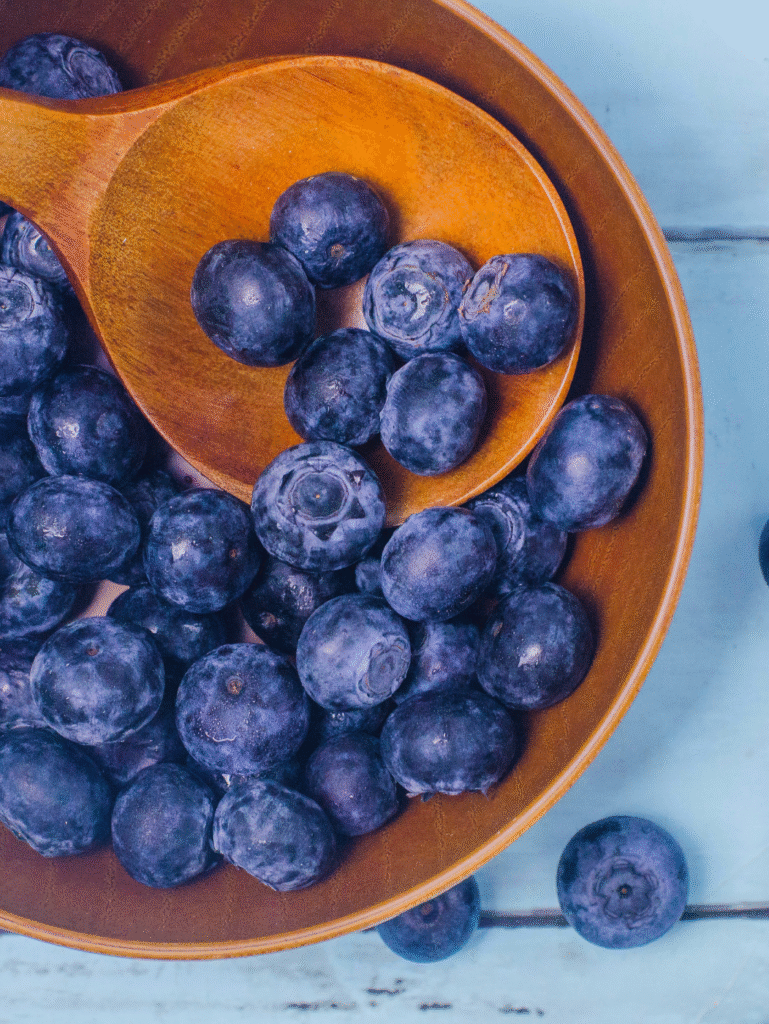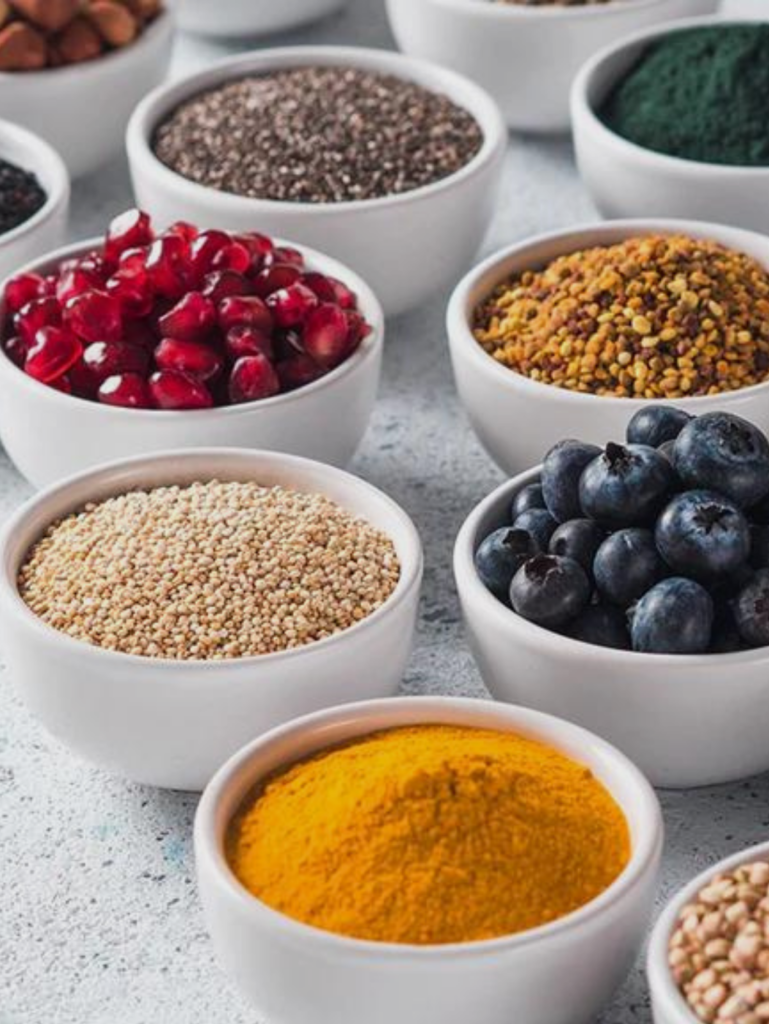Inflammation is the body’s natural response to infection or injury. However, when inflammation becomes chronic, it can trigger serious diseases such as heart problems, cancer, obesity and diabetes. The good news is that some foods, thanks to their antioxidant compounds and anti-inflammatory properties, can help fight this condition.
Adopting an anti-inflammatory diet, rich in fruits, vegetables, healthy fats and spices, can strengthen the immune system, improve heart health and reduce the risk of chronic diseases. Although some studies are still conducted in laboratories or on animals, the benefits of these foods are widely recognized by nutrition experts.
Below, we will explore the best anti-inflammatory foods and how to easily integrate them into your daily diet.
Turmeric
Turmeric is a spice known for its anti-inflammatory properties. Its active compound, curcumin, fights inflammation and acts as a potent antioxidant. Regular consumption of turmeric has been linked to a decrease in inflammatory markers such as C-reactive protein (CRP). To maximize its absorption, it is recommended to combine it with black pepper, which contains piperine.
How to consume it?
- In soups and stews: Add turmeric to your daily recipes for flavor and color.
- Golden milk: Prepare this hot drink with vegetable milk, turmeric and honey.
- Smoothies: Mix a pinch of turmeric in your morning smoothies.
- Rice and curry dishes: Use it as a condiment in Asian recipes for a healthy touch.
Avocados
Avocado is a rich source of healthy fats, fiber, magnesium and potassium. It contains carotenoids and tocopherols, two potent antioxidants that help reduce inflammation. A 2019 study revealed that consuming an avocado a day for 12 weeks decreases inflammatory markers in people who are overweight or obese.
How to consume it? Add it to salads, spread it on whole grain bread or add it to smoothies for a nutritional boost.
Beets (Betabels)
Beets are noted for their vibrant color and their content of fiber, folate and betalains, pigments with antioxidant and anti-inflammatory properties. It has been suggested that beets not only reduce inflammation, but also protect against heart disease and cancer.
How to consume them? Try roasting them and adding them to your salads, or use them as a base for nutritious soups.
Blueberries
Blueberries are rich in polyphenols, which not only give them their characteristic blue color, but also fight inflammation. Regular consumption of blueberries has been shown to improve cognitive health and reduce cellular inflammation.
How to consume them? Add them to yogurts, smoothies or oatmeal for a healthy breakfast.
Dark Chocolate
Dark chocolate with at least 70% cocoa is a source of flavonoids, antioxidants known to reduce inflammation. In addition, studies indicate that cocoa flavanols may improve cardiovascular health and decrease arterial stiffness.
How to consume it? Opt for chocolate with high cocoa content and low in sugar to obtain greater benefits.
Blue Fish
Salmon, mackerel, tuna and sardines are rich in omega-3 fatty acids, which are essential for reducing inflammation in the body. Omega-3s also help maintain a healthy balance with omega-6 fatty acids, which are present in processed foods.
Tip: Try to eat two servings of fish per week and choose grilled or baked options instead of fried.
Garlic
Garlic is known for its multiple medicinal properties. Its organosulfur compounds help reduce the levels of pro-inflammatory substances in the blood.
How to consume it? Use it in stews, sauces and dressings to take advantage of its benefits.
Ginger
Ginger, commonly used in traditional medicine, contains bioactive compounds that reduce the production of substances that promote inflammation.
How to consume it? Add it to herbal teas, smoothies or soups, or use powdered ginger to flavor your dishes.
Grapes
Grapes, especially purple grapes, contain resveratrol, an antioxidant that protects the heart and reduces inflammation. One study showed that regular consumption of resveratrol decreases inflammatory markers in people with heart failure.
How to consume them? Enjoy them fresh or add them to salads for a sweet touch.
Green Leafy Vegetables
Spinach, chard and kale are rich in vitamin E, a potent antioxidant that fights cytokines, inflammatory molecules. In addition, these vegetables contain iron and vitamin A, essential for immune health.
Tip: Add them to smoothies, salads or as a garnish.
Green Tea
Green tea contains EGCG, an antioxidant compound that reduces inflammation and may reduce the risk of diseases such as cancer and heart problems.
How to consume it? Enjoy a hot cup of green tea or try a cold matcha tea as a refreshing drink.
Dried Fruits
Almonds, walnuts and other nuts are an excellent source of healthy fats. Consuming nuts regularly is associated with lower levels of C-reactive protein (CRP), a marker of inflammation.
How to consume them? Add them to salads or eat them as a healthy snack.
Olive Oil
Extra virgin olive oil is key in the Mediterranean diet. It contains oleocanthal, a compound that acts similarly to ibuprofen, reducing inflammation.
How to consume it? Use it in salads and for slow cooking.
Onion
Quercetin, present in onions, has anti-inflammatory properties. Some studies suggest that onions may alleviate the symptoms of rheumatoid arthritis.
How to consume it? Add it to salads, sauces or stews to enhance its flavor and benefits.
Peppers
Peppers, both sweet and hot, are full of antioxidants. Hot peppers contain capsaicin, a compound that reduces pain and inflammation.
How to consume them? Add them to salads, sauces or as a roasted garnish.
Raspberries
Raspberries, like blueberries, are rich in anti-inflammatory polyphenols. One study showed that their consumption reduces sugar levels and inflammation in people with type 2 diabetes.
Tomatoes
Tomatoes are rich in lycopene, an antioxidant that reduces inflammation. Cooking tomatoes increases their lycopene content, so consumption of tomato sauce is beneficial.
Foods to Avoid
Some foods can promote chronic inflammation if consumed frequently, especially those rich in trans fats, added sugars, and refined carbohydrates. Excess of these foods not only aggravates inflammation, but can also contribute to weight gain, hypertension, and an increased risk of developing cardiovascular disease, diabetes, and other metabolic disorders.
Common Inflammatory Foods:
- Fried food.
- Processed meats
- Soft drinks and sweetened beverages
- Breads and refined pasta
Although occasionally consuming these foods does not pose a serious risk, it is important to moderate your intake to avoid long-term health problems. If you have a chronic disease or specific inflammatory conditions, reducing your intake can significantly improve your well-being.
Consultation with a Specialist
Every body is different, and the response to certain foods may vary. For this reason, it is essential to consult with a nutritionist or physician before making drastic changes to your diet. They will be able to assess your particular needs, identify food intolerances or sensitivities, and provide you with a personalized plan to effectively and safely control inflammation.

